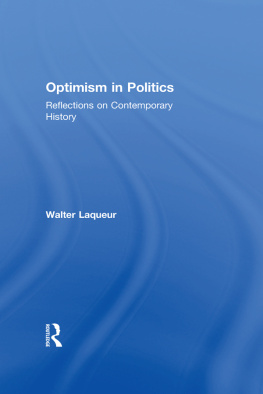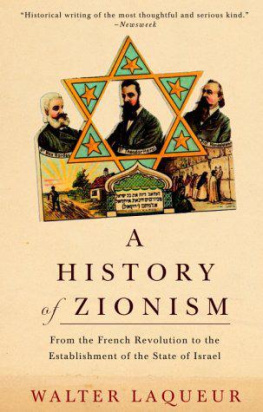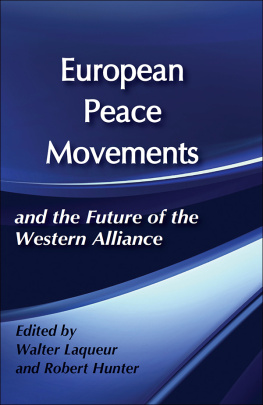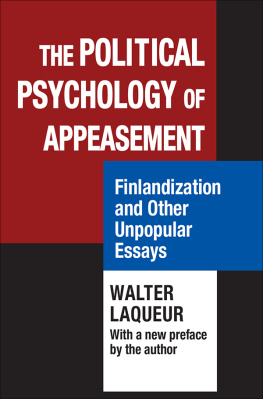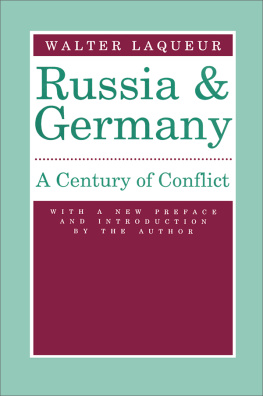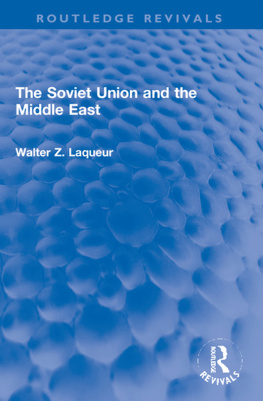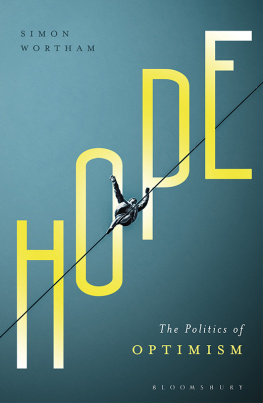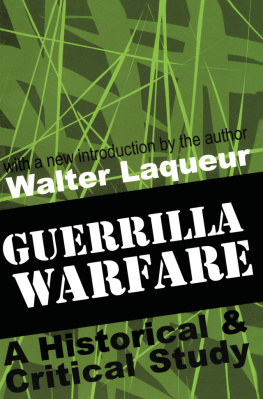First published 2014 by Transaction Publishers
Published 2017 by Routledge
2 Park Square, Milton Park, Abingdon, Oxon OX14 4RN
711 Third Avenue, New York, NY 10017, USA
Routledge is an imprint of the Taylor & Francis Group, an informa business
Copyright 2014 by Taylor & Francis.
All rights reserved. No part of this book may be reprinted or reproduced or utilised in any form or by any electronic, mechanical, or other means, now known or hereafter invented, including photocopying and recording, or in any information storage or retrieval system, without permission in writing from the publishers.
Notice:
Product or corporate names may be trademarks or registered trademarks, and are used only for identification and explanation without intent to infringe.
Library of Congress Catalog Number: 2013021571
Library of Congress Cataloging-in-Publication Data
Laqueur, Walter, 1921
Optimism in politics : refl ections on contemporary history / Walter
Laqueur.
pages cm.
Includes index.
ISBN 978-1-4128-5266-1
1. Political sciencePhilosophy. 2. OptimismPolitical aspects.
3. Political scienceHistory. I. Title.
JA71.L264 2014
320.01dc23
2013021571
ISBN 13: 978-1-4128-5266-1 (hbk)
Some essays in this volume deal with current affairs, some with events that took place more than seventy years ago, and some with the future. The author happens to be the only common denominator. Events that occurred a long time ago shaped, by necessity, his views as historian and political commentator; how could it have been otherwise? Not every historical period is of equal interest; there is a poem by Gottfried Keller, the great nineteenth-century Swiss writer, to the effect that a day can be equal to a century, but also vice versa (und ein Jahrhundertnichts). The period between the two World Wars is, today, of greater interest than that in the 1950s and 1960scertainly in Europe, perhaps also in America. It was certainly a more dramatic and less normal time.
There is a connection between writing history and commenting on current affairs, but it is not remotely as close and simple as often thought. The idea that the historian is somehow better qualified than others to interpret the present let alone predict the future is certainly mistaken, and it is not borne out by the evidence. Some great historians have been good and reliable political commentators, and others have been miserable failures. There are, of course, lessons of history, but since each historical situation is different, they cannot be applied like a recipe when cooking a dish (and even recipes for cooking cannot be slavishly applied because the quality of the raw materials and even the water may differ).
My first newspaper articlein a weeklyappeared in 1942 when the war was not going well and it dealt with what is now called soft power, propaganda in war time. My first book appeared five years later. It was a short paper back. At a time when paperbacks were rare and it dealt with oil in the Middle East, which, at the time, was not yet a very important subject. The literature existed of a handful of books and one or two periodicals. Looking back, I am not particularly proud of these limbering- up exercises, as there was nothing very original or profound about them.
I had followed international politics even earlierI remember listening on the radio to the results of the German elections of 1930 in which the Nazis emerged as the second strongest party, which is to say that my first recollections were of a depressing character. However, befitting my age, my interest in sport was more intense. Unlike France (LEquipe), Germany had no daily sports newspaper, but only weeklies, which appeared on Monday mornings. Why should I remember that a man whose name was quite similar to mine was running the hundred meters in my home town in 10.5? Given technical improvements such as the surface of race tracks, the running shoes (called spikes at the time) not to mention the intake of scientific foods and drugs (legal and illegal), I doubt whether contemporary achievements in the field are significantly better (with the notable exception of long distance running) than those at the time of my boyhood.
Looking back, I suspect my subsequent depression would have been deeper had I been younger and had my writing career began twenty or thirty years later. I also remember, from early on, annoyance with mistaken interpretations of current eventsthe prevailing opinions among the political class, academics, and commentators. True, academics according to my recollections were far more reluctant at the time to venture their views in public. My German literature teacher was an exception, which in some ways I found refreshing. I owe him a solid grounding in German right-wing and nationalist belles-lettres. Specific Nazi-inspired literature was relatively little there, and I did not suffer from discrimination as far as he was concerned.
Gaining an insight with regard to Nazi doctrine and watching Nazi practice, even at an early age, served as a useful antidote against naivete and wishful thinking in politics in later years. True, not every dictator was a Hitler and not every dictatorship as extreme as Nazi rule, but my years in Germany after 1933 had been a warning and an education.
Friends have suggestedperhaps, I had chosen the wrong profession in later years with a fixation on politics. Wasnt it too depressing, negative, and boring? I remember a questionnaire some years ago; if not at the present time, which period would I have preferred for living? I repliedParis in the last quarter of the nineteenth century. It was a far more optimistic period than the present time, culturally more creative, more interesting, and eventually also more optimistic. My interest would certainly not have focused primarily on politics. I once asked a very educated elderly gentleman of my acquaintance from whom I had learned a great deal why he started reading the sports section of the daily newspaper before all others. His answer was that in the sport section human achievements are reported, and elsewhere, domestic or foreign policy, so it is mostly a story of setbacks, failures, and even disasters. When I graduated from school, the teachers advised me in writing to choose a career as a sports teacher or physician, since my inclinations and talents were obviously in this general direction.

